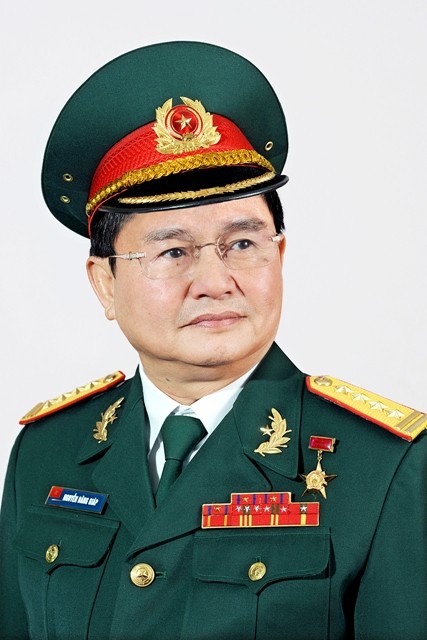VOVworld) – Corporation 36, a state-owned firm under the Ministry of Defense, is speeding up the equitization roadmap pursuant to the Prime Minister’s instruction of rearrangement and renovation of SOEs under the Ministry until 2015. VOV talked to Colonel Nguyen Dang Giap, Chairman and Director General of the Corporation, about advantages and challenges faced by the equitization process.

Colonel Nguyen Dang Giap, Chairman and Director General of the Corporation 36 |
1. How has Corporation 36 prepared to change its operating model to meet the market requirements of fair competition in the context of international integration?
Corporation 36 cannot be excluded from international integration. In any economy, enterprises play a significant role in national development. We have prepared ourselves for this roadmap. Although these preparations haven’t been enough, we’ve realized how it will go because our corporation is different from others. From an indebted enterprise, after 7 years Corporation 36 has become a single-member limited liability company, the first of its kind of the Defense Ministry. In the context of the global economic recession, we have turned challenges into opportunities with turnover reaching more than 140 million USD. Over the past decade we have proven that we have the right development direction.
2. Corporation 36 is known for being a military company whose business is ensuring national security and achieving major growth. What advantages and challenges will the company face when it’s equitized?
During international integration, we must outline appropriate steps for this process. For example, Vietnam will soon sign the Trans-Pacific Partnership Agreement. Vietnam first should make necessary improvements and breakthroughs. Second, we should change our view of business administration to match Vietnam’s development requirements and world economic trends.
Corporation 36 has recently agreed to undergo equitization with a roadmap until the end of next year. I think it’s a revolution because the process will offer both challenges and opportunities. The first challenge is that there is no precedent for the equitization of a parent-company. It’s difficult for us to sell the shares of a parent-company, to find a suitable strategic shareholder and investors. We understand the point and have invited experts in the field to offer professional advice. Whether we like it or not, Vietnamese businesses including us must follow the unavoidable process of equitization in which the state holds only a minority share, particularly in specialized companies. As the vanguard in this process, Corporation 36 has been inspired by the government and the Prime Minister. The process should be speeded up to preserve state capital and develop an advanced, transparent, and scientific administration model for Vietnam.
3. What has the corporation done to develop economic – defense areas in strategic remote, border, and island regions while ensuring national security?
Our projects are in 52 provinces and cities across Vietnam and Laos. For remote areas, our development strategy is to apply technologies the more advanced, the better, while the workforce should have strong qualifications, strong health, and strong endurance. We have developed a business culture of closely cooperating with local youth unions and strengthening relations between the army and civilians. One key is to make the best use of local human resources, especially in ethnic minority areas. I think our achievements in the past few years are due to the joint efforts of officials and workers, and a determination to do everything for the people.
Thank you for granting VOV this interview. That was Colonel Nguyen Dang Giap, Chairman and Director General of Corporation 36.